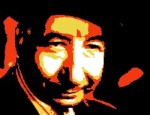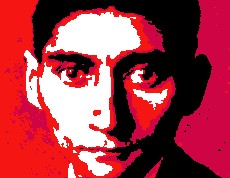Film Review

Contrary to popular belief, this was not Bertrand Blier's first film. Blier began his filmmaking career in the 1960s, when he made two films, the documentary Hitler, connais pas (1963) and the thriller Si j'étais un espion (1967). Neither of these films was a success and both are virtually forgotten today. Having failed to make his mark as a film director, Blier turned to writing, and it is one of his novels that provided him with the subject for the film that would relaunch his filmmaking career, Les Valseuses. This film not only established Bertrand Blier's reputation as the most iconclastic and individualistic French film director of his generation, it also introduced three actors who would become major stars of French cinema over the next decade: Gérard Depardieu, Patrick Dewaere and Miou-Miou. The cast also includes a French film icon, in the form of Jeanne Moreau (superb in one of her most disturbing screen roles); an actress desperate to escape from the shadow of her most famous role (as the girl heroine of Jeux interdits, 1952), Brigitte Fossey; and a brace of actors, in minor roles, who would later come to prominence: Isabelle Huppert, Thierry Lhermitte and Gérard Jugnot. The cast list of Les Valseuses could almost be mistaken for an abridged Who's Who of French cinema.
With its crude language and even cruder depictions of sex and violence, Les Valseuses could easily have degenerated into a self-indulgent orgy of vulgarity for vulgarity's sake. What prevents it from doing so is the childlike innocence with which its main protagonists, beautifully portrayed by Gérard Depardieu and Patrick Dewaere, prosecute their career of petty crime and assault on a society from which they are permanently excluded. Jean-Claude and Pierrot are the kind of loveable rogues we cannot help siding with, even though most of their actions are disgusting beyond words and leave an extremely nasty taste in the mouth. They may be cowardly, misogynistic brutes, but we envy the freedom that they appear to have, the freedom to live unfettered by any of the constraints (societal and moral) that we allow ourselves to be inhibited by and which suppress both our identity and our primal urges, for the good of society. Les Valseuses is not an exhortation of the 'everything goes' hedonist lifestyle; it is intended to make us aware of how easily we allow ourselves to become slaves to convention. It is a film that forces us to reflect on whether we should not be more willing to challenge the status quo, rather than to go on living like sheep, never questioning the rules that we feel we are obliged to abide by. The fact that it is still possible to be shocked and disgusted by Les Valseuses is in itself quite revealing. Perhaps we are not as open-minded and liberated as we like to think we are. Which should offend us more - a film of a dubiously moral nature, or an attempt by our elected leaders to prevent us from watching that film and making up our own minds? Sometimes it helps to be kicked out of our complacency.
© James Travers 2012
The above content is owned by frenchfilms.org and must not be copied.
Film Synopsis
Jean-Claude and Pierrot are two long-haired social drop-outs who kill time by committing petty crimes and harassing women. After joyriding in a stolen car, they are confronted by its angry owner, who takes his revenge by shooting Pierrot where it most hurts. The two men flee in the car, taking with them Marie-Ange, an employee of the car's owner. Once Pierrot has been patched up by a doctor (whom they repay by robbing), the two men resume their aimless wandering, taking refuge in a desolate coastal resort. Pierrot becomes anxious over his inability to achieve sexual arousal, so he and Jean-Claude return to Marie-Ange hoping she will oblige them. Whilst the latter is more than willing to have sex with the two men, it soon become evident that she is incapable of reaching a climax. Jean-Claude and Pierrot then become fixated on an older woman, Jeanne, who has just been released from prison. Jeanne is surprised when the two men offer her money, treat her to new clothes and take her to an expensive restaurant. After spending the night together in a hotel, the two men are horrified to find that Jeanne has killed herself with their gun. Once again, they take flight and hook up with Jeanne's son, just as he leaves prison. As luck would have it, Jeanne's son is the one man who can cure Marie-Ange of her frigidity. All's well that ends well...© James Travers
The above content is owned by frenchfilms.org and must not be copied.
Similar Films
Here are some other films you may enjoy watching:- Destins (1946)
- Monsieur Verdoux (1947)
- Tih Minh (1918)
- Rouletabille aviateur (1932)
- Crimes and Misdemeanors (1989)
Other related links:
Film Credits
- Director: Bertrand Blier
- Script: Philippe Dumarçay, Bertrand Blier (novel)
- Cinematographer: Bruno Nuytten
- Music: Stéphane Grappelli
- Cast: Gérard Depardieu (Jean-Claude), Patrick Dewaere (Pierrot), Miou-Miou (Marie-Ange), Jeanne Moreau (Jeanne Pirolle), Brigitte Fossey (Woman in the train), Christian Alers (Jacqueline's father Henri), Michel Peyrelon (The Doctor), Gérard Boucaron (Carnot), Jacques Chailleux (Jacques Pirolle), Eva Damien (Doctor's wife), Dominique Davray (Ursula), Isabelle Huppert (Jacqueline), Marco Perrin (Supermarket inspector), Jacques Rispal (Maton), Gérard Jugnot (Holyday-Maker with Family), Thierry Lhermitte (Doorman), Christiane Muller (Jacqueline's mother), Michel Pilorgé (Man on the motorscooter), Claude Vergnes (Merlan), Claude Piéplu (Récitant de la bande-annonce)
- Country: France
- Language: French
- Support: Color (Eastmancolor)
- Runtime: 117 min
- Aka: Going Places
Continental Films, quality cinema under the Nazi Occupation

Kafka's tortuous trial of love

The greatest French film directors
